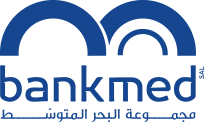LONDON/BEIRUT – Oil trader IMMS has taken Lebanese bank BankMed to court in the U.S. state of New York, accusing it of failing to return $1 billion of its deposits when requested, according to court documents seen by Reuters.

IMMS Chief Executive Murtaza Lakhani, who trades European, Middle Eastern and Asian oil and oil products, said he would not comment beyond the case, filed with the Supreme Court of the State of New York on Nov. 22.
In a statement on Wednesday, BankMed responded: “The $1 billion deposit is a blocked deposit by instructions of IMMS maturing in about 2 years from now.”
It also said that it had discovered “material breaches of contract and attempts by IMMS to direct funds due to BankMed overseas” between October 30 and November 12, 2019, without providing further details.
“BankMed opposed such attempts by IMMS and took appropriate actions,” it said.
The lawsuit appears to represent one of the first major challenges to restrictions Lebanese banks have begun applying to transfers and withdrawals as they grapple with a hard currency shortage and fears of capital flight.
Protests that have swept Lebanon since Oct. 17 have put pressure on the country’s financial system, deepening the hard currency crunch and prompting commercial banks to put curbs on foreign currency withdrawals and nearly all transfers abroad.
IMMS, which is incorporated in Belize, said in its lawsuit that it had instructed BankMed to return a $1 billion deposit on Nov. 8.
BankMed responded on Nov. 12 saying it was terminating all of IMMS’s credit facilities “due to the material adverse change in the economic condition of Lebanon and the Lebanese financial market”, according to the court filing.
As part of the same agreement, BankMed had provided credit and services to IMMS including revolving and overdraft credits to help it trade oil, the court filing said.
“By this action, plaintiff IMMS Limited (IMMS) seeks remedies against defendant BankMed SAL (BankMed) for BankMed’s brazen theft of more than $1 billion from its banking client IMMS,” the court filing said.
IMMS made a similar claim in a Lebanese court just prior to the U.S. filing, with a hearing set for December, according to the BankMed statement.
“As per the contracts, the relationship between BankMed and IMMS is subject to Lebanese law and to the exclusive jurisdiction of the Lebanese courts,” it said.
“BankMed remains committed to its high standards of banking, to the protection of its customers’ interests, and to the application of Lebanese laws and practices as required under the current circumstances,” the statement added.
S&P Global Ratings said on Nov. 14 it had cut BankMed’s rating further into junk territory, citing rising liquidity pressures due to faster deposit erosion. S&P’s long-term credit rating for BankMed is now CCC and the ratings agency said it was vulnerable to further downgrades.
IMMS started working with BankMed in November 2017 by placing short-term deposits for up to nine months earning annual interest rates of up to 6.5%.
IMMS, represented by New York law firm Meister Seelig & Fein, said in its filing that in November 2018 it deposited $1 billion with BankMed for three years at “a high interest rate”.
Not much information is available on IMMS but its chairman the Pakistani businessman Murtaza Lakhani is the former agent of Glencore the company that profited handsomely by dealing with Saddam Hussein under the 1996-2003 U.N. Oil-for-Food Program, which allowed the Iraqi dictator to trade limited quantities of oil in exchange for humanitarian supplies. Following the Iraqi war he became the key trader in orchestrating Kurdistan’s oil sales . He became the go-to fixer for the Kurdistan Regional Government that controls the semi-autonomous enclave in the country’s north.
BankMed is chaired by Mohammed Hariri, a cousin of outgoing Prime Minister Saad Hariri’s late father Rafik.
Nazek Hariri, the widow of the embattled premier’s father, sits on the bank’s board of directors — as does the current interior minister, Raya al-Hassan.
REUTERS/YL

Leave a Reply
You must be logged in to post a comment.